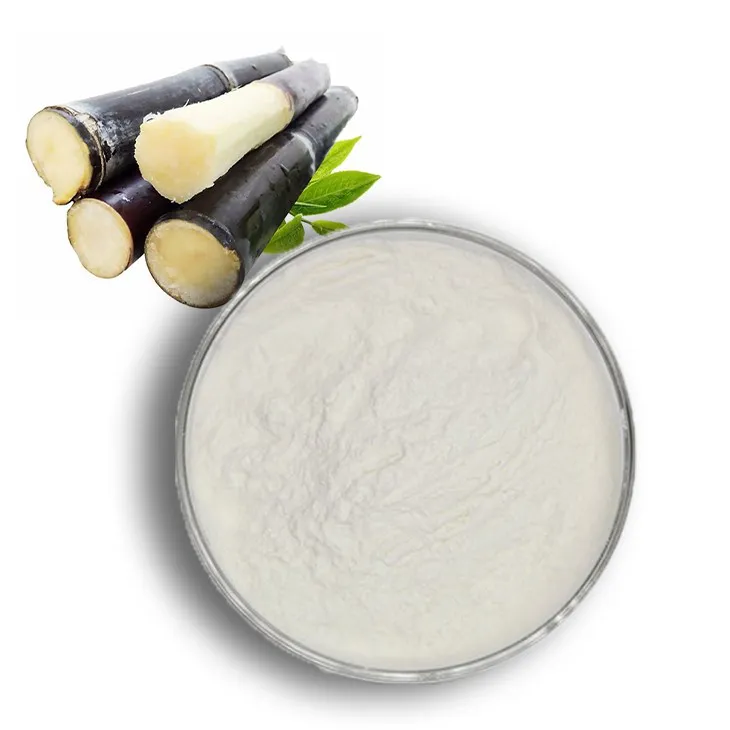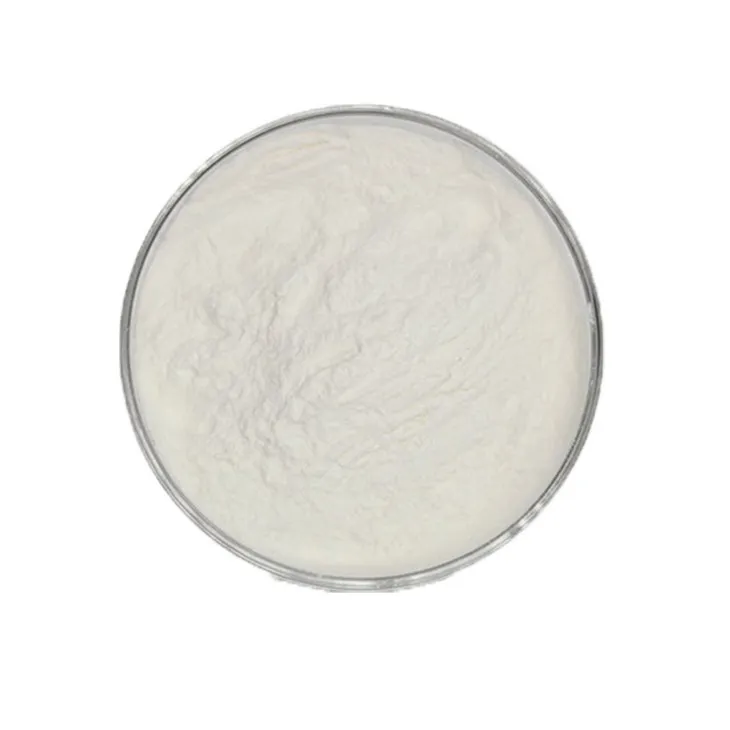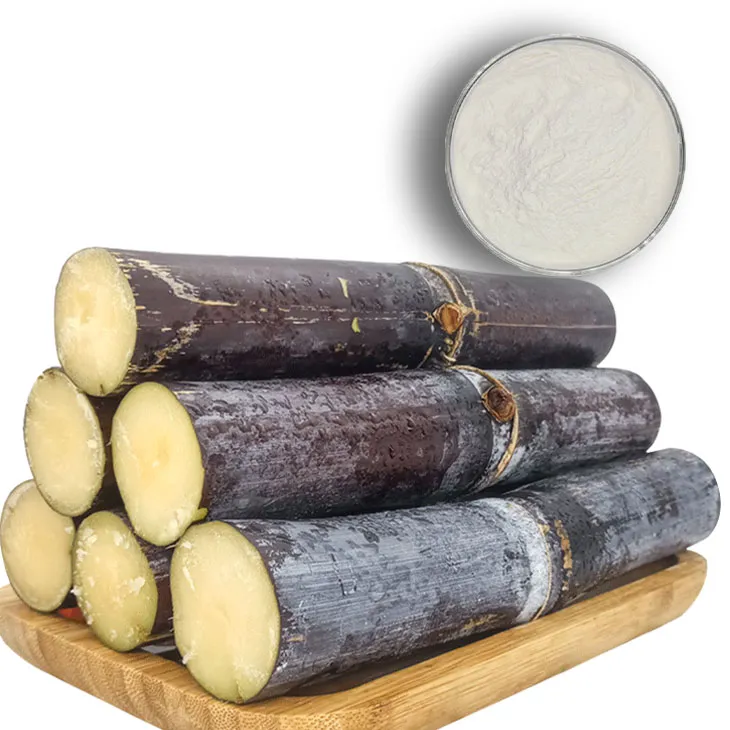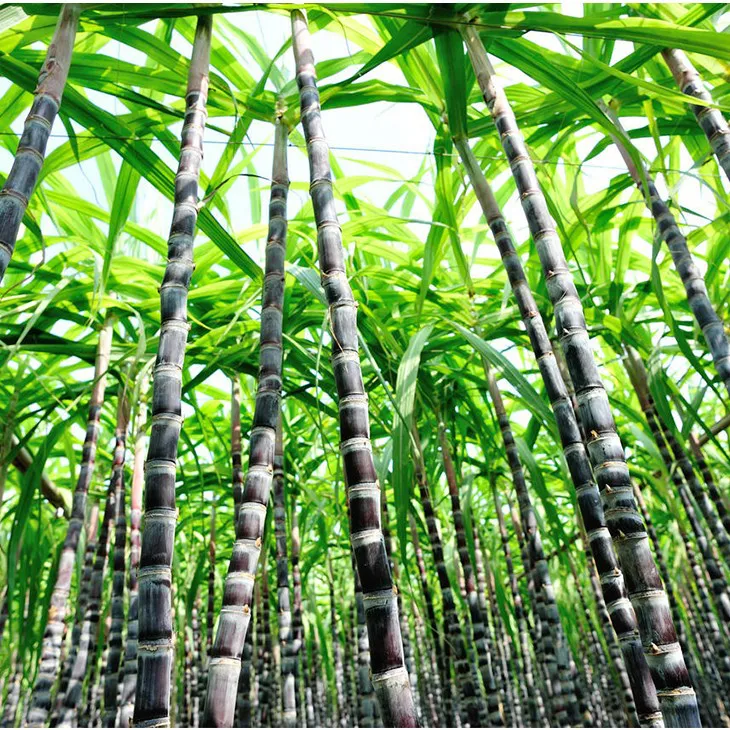- 0086-571-85302990
- sales@greenskybio.com
Understanding Private Labels of Sugarcane Extracts: A Comprehensive Guide
2024-12-21

1. Introduction to Sugarcane Extracts
Sugarcane Extracts are becoming increasingly popular in various industries. Sugarcane, a tall perennial grass, is rich in sucrose, which can be processed into different forms of extracts. These extracts can range from traditional cane sugar to more refined and specialized products like molasses and cane juice concentrates. Sugarcane Extracts are not only used in the food and beverage industry but also find applications in cosmetics, pharmaceuticals, and even some industrial processes.

2. What is a Private Label?
A private label is a product that is manufactured by one company but sold under another company's brand name. In the context of sugarcane extracts, a private label allows a company to market its own branded version of sugarcane - based products without having to invest in the entire production process from scratch. For example, a small - scale food company might partner with a larger manufacturer of sugarcane extracts to create their own line of cane - sweetened products with their unique branding.

3. The Significance of Private Labels in Different Industries
3.1 Food and Beverage Industry
In the food and beverage industry, private labels of sugarcane extracts offer several advantages. For manufacturers, it provides an opportunity to diversify their product offerings. A company that typically produces only refined sugar can expand into the natural cane sugar or cane juice market under a private label. For retailers, private - label sugarcane products can be a cost - effective way to offer unique products. They can source high - quality sugarcane extracts from manufacturers and sell them under their own brand, often at a more competitive price compared to well - known national brands.
- Increased consumer choice: Consumers are increasingly looking for different types of sweeteners, and private - label sugarcane extracts can fill this niche. For instance, some consumers prefer the rich flavor of molasses - based products for baking, and private labels can offer such specialized items.
- Branding flexibility: Retailers can create a brand image that emphasizes the natural and healthy aspects of sugarcane extracts. They can market their private - label products as being sourced from sustainable sugarcane farms or having a unique production process.
3.2 Cosmetics Industry
Sugarcane extracts are used in cosmetics for their moisturizing and exfoliating properties. In the cosmetics industry, private labels play a crucial role.
- Customization: Cosmetic companies can work with manufacturers of sugarcane extracts to develop products tailored to their specific brand requirements. For example, a high - end skincare brand might require a particular concentration of cane - derived glycolic acid for its exfoliating products, and a private label arrangement allows for this customization.
- Market penetration: For new or niche cosmetic brands, using private - label sugarcane - based products can be a way to enter the market quickly. Instead of spending a large amount of time and resources on developing their own extraction and formulation processes, they can rely on established manufacturers and focus on marketing their brand.
3.3 Pharmaceutical Industry
In the pharmaceutical industry, sugarcane extracts may be used as carriers or in the formulation of certain medications. Private labels in this context are important for several reasons.
- Quality assurance: Pharmaceutical companies need to ensure the highest quality of ingredients in their products. By partnering with reliable manufacturers of sugarcane extracts through private label agreements, they can have better control over the quality of the extracts used in their medications.
- Cost - effectiveness: Developing in - house extraction facilities for sugarcane extracts can be expensive for pharmaceutical companies. Private labels allow them to access high - quality extracts at a more reasonable cost, which can be especially important for companies producing generic medications.

4. Quality Control in Sugarcane Extract Private Labels
Quality control is of utmost importance when it comes to private labels of sugarcane extracts.
- Raw material sourcing: The quality of sugarcane used as the raw material significantly impacts the final extract. Manufacturers should ensure that the sugarcane is sourced from reliable farms. This includes factors such as the variety of sugarcane, its cultivation methods (e.g., organic vs. conventional), and the geographical location of the farms. For example, sugarcane grown in certain regions may have a higher sucrose content due to favorable climate conditions.
- Extraction process: The extraction process must be carefully monitored. Different extraction methods can result in different qualities of the extract. For instance, traditional methods of extracting cane sugar may produce a different product compared to more modern enzymatic extraction methods. The extraction process should be optimized to ensure maximum yield of the desired components while minimizing impurities.
- Testing and certification: Sugarcane extract private labels should undergo rigorous testing. This includes tests for purity, chemical composition, and microbiological safety. Certifications such as ISO standards or organic certifications can add value to the private - label products. For example, an organic certification can attract consumers who are conscious about the origin and production methods of the products they use.

5. How Private Labels of Sugarcane Extracts Can Enhance Your Brand's Identity
A well - managed private label of sugarcane extracts can have a positive impact on a brand's identity.
- Differentiation: In a crowded market, having a unique private - label sugarcane product can set a brand apart from its competitors. For example, a brand that offers a rare type of cane juice concentrate with distinct health benefits can attract consumers looking for something different.
- Perceived quality: If a brand can communicate effectively about the quality of its private - label sugarcane extracts, consumers are likely to perceive the overall brand as being of high quality. This can be achieved through marketing materials that highlight the quality control measures, the origin of the sugarcane, and any unique processing techniques.
- Consumer loyalty: By offering high - quality private - label sugarcane extracts, a brand can build consumer loyalty. Consumers who are satisfied with the taste, quality, and value of the products are more likely to become repeat customers and recommend the brand to others.
6. Challenges and Considerations in Private Labeling of Sugarcane Extracts
While private labeling of sugarcane extracts offers many opportunities, there are also challenges to be aware of.
- Regulatory compliance: Different industries and regions have various regulations regarding the use and labeling of sugarcane extracts. For example, in the food industry, there are strict regulations on the labeling of ingredients, nutritional information, and allergen warnings. Cosmetic and pharmaceutical industries also have their own sets of regulations. Brands need to ensure that their private - label products are fully compliant with all relevant regulations.
- Supply chain management: Maintaining a stable supply of sugarcane extracts can be challenging. Factors such as weather conditions, crop diseases, and geopolitical issues can affect the availability of sugarcane. Brands need to work closely with their manufacturing partners to manage the supply chain effectively and ensure a consistent supply of their private - label products.
- Brand competition: With the increasing popularity of private labels, there is also more competition. Brands need to continuously innovate and improve their private - label sugarcane extract products to stay ahead. This may involve investing in research and development to find new applications for sugarcane extracts or improving the taste and quality of existing products.
7. Conclusion
Private labels of sugarcane extracts offer a wealth of opportunities for companies in various industries. Understanding the significance, quality control, and how they can enhance brand identity is crucial for businesses looking to take advantage of this growing trend. However, it is also important to be aware of the challenges and considerations involved. By carefully managing these aspects, companies can successfully integrate private - label sugarcane extract products into their business strategies and gain a competitive edge in the market.
FAQ:
What is a private label in sugarcane extracts?
A private label in sugarcane extracts refers to a product that is manufactured by one company but sold under another company's brand name. It allows businesses to offer unique cane extract products without having to engage in the full manufacturing process themselves.
Why are private labels important in the sugarcane extract industry?
Private labels are important in the sugarcane extract industry for several reasons. Firstly, they offer companies the opportunity to differentiate their products in a competitive market. Secondly, they can be more cost - effective as they often utilize the manufacturing capabilities of specialized producers. Thirdly, they enable businesses to quickly enter the market with a new product line without significant investment in production facilities.
How is quality control maintained in private label sugarcane extracts?
Quality control in private label sugarcane extracts is maintained through several methods. The manufacturing company typically has strict quality assurance procedures in place, including sourcing high - quality sugarcane, using proper extraction techniques, and conducting regular testing for purity, taste, and consistency. The brand owner may also conduct their own quality checks to ensure the product meets their standards.
Can private label sugarcane extracts enhance a brand's identity?
Yes, private label sugarcane extracts can enhance a brand's identity. By offering a unique cane extract product under their own brand, companies can position themselves as providers of high - quality, specialized ingredients. This can attract customers who are looking for something different and help to build brand loyalty.
What are the challenges associated with private label sugarcane extracts?
Some challenges associated with private label sugarcane extracts include ensuring consistent quality, especially when dealing with different suppliers or production batches. There may also be challenges in marketing the product effectively to stand out from competitors. Additionally, regulatory compliance can be a complex issue, as different regions may have different requirements for the labeling and sale of cane extract products.
Related literature
- Quality Control in Sugarcane Extract Production"
- "The Role of Private Labels in the Food Ingredient Industry"
- "Enhancing Brand Identity through Unique Product Offerings: The Case of Sugarcane Extracts"
- ▶ Hesperidin
- ▶ Citrus Bioflavonoids
- ▶ Plant Extract
- ▶ lycopene
- ▶ Diosmin
- ▶ Grape seed extract
- ▶ Sea buckthorn Juice Powder
- ▶ Fruit Juice Powder
- ▶ Hops Extract
- ▶ Artichoke Extract
- ▶ Mushroom extract
- ▶ Astaxanthin
- ▶ Green Tea Extract
- ▶ Curcumin
- ▶ Horse Chestnut Extract
- ▶ Other Product
- ▶ Boswellia Serrata Extract
- ▶ Resveratrol
- ▶ Marigold Extract
- ▶ Grape Leaf Extract
- ▶ New Product
- ▶ Aminolevulinic acid
- ▶ Cranberry Extract
- ▶ Red Yeast Rice
- ▶ Red Wine Extract
-
Tinospora cordifolia extract
2024-12-21
-
Withania Somnifera Extract
2024-12-21
-
Mango flavored powder
2024-12-21
-
Acai Berry Extract
2024-12-21
-
Yohimbine Bark Extract
2024-12-21
-
Natural grape seed extract
2024-12-21
-
Sophora Japonica Flower Extract
2024-12-21
-
Elderberry Extract
2024-12-21
-
Mulberry Extract
2024-12-21
-
Camu Camu Extract
2024-12-21





















